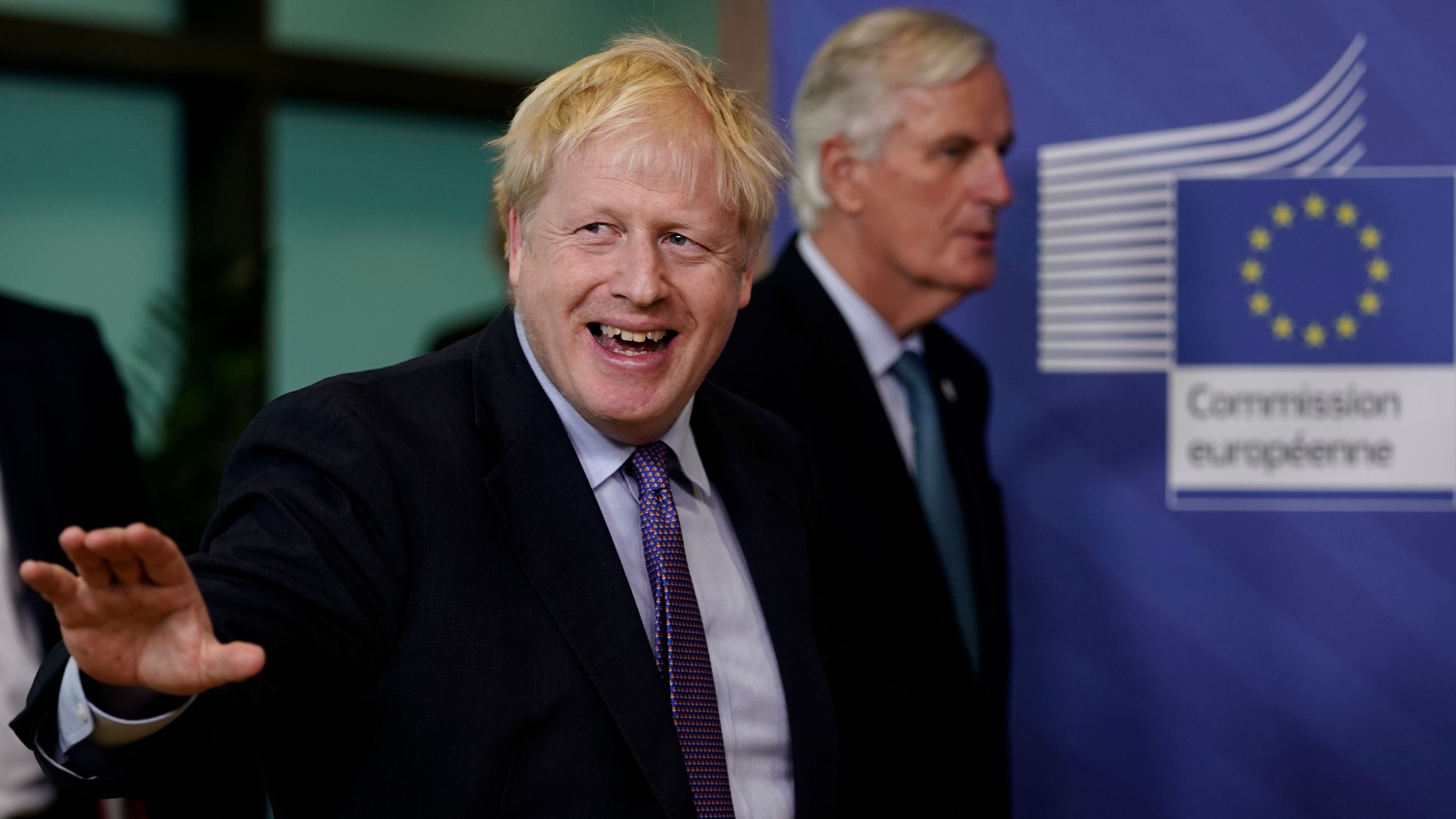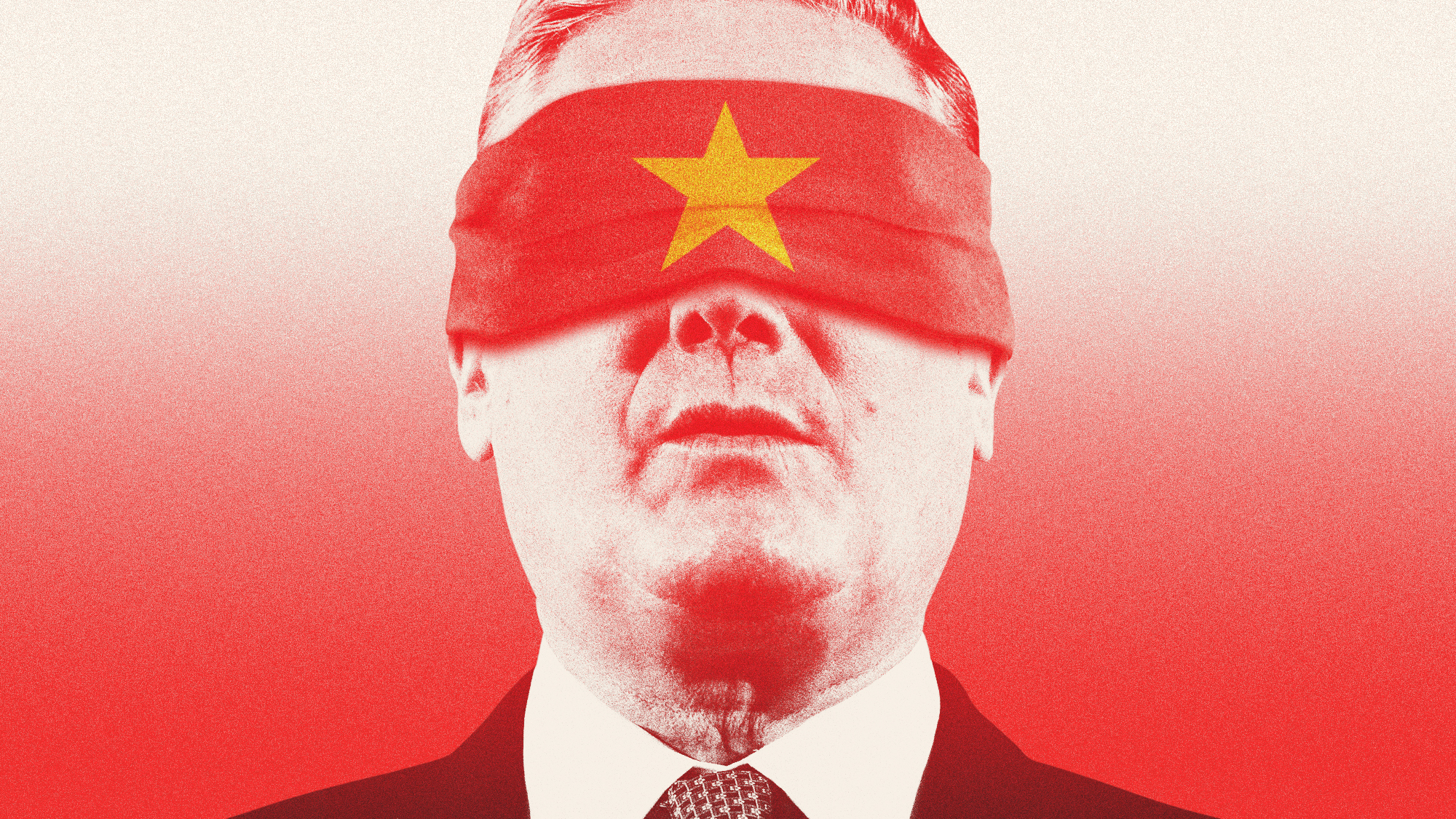Post-Brexit trade talks: what each side wants
UK wants same terms EU has previously offered other countries

A free daily email with the biggest news stories of the day – and the best features from TheWeek.com
You are now subscribed
Your newsletter sign-up was successful
The UK’s chief Brexit negotiator will today set out Britain’s ambitions for its future trading relationship with the EU.
David Frost will say that the UK must be granted a trade deal on the same terms as the EU has given to Canada, South Korea and Japan.
But the French foreign minister Jean-Yves Le Drian has warned the UK the two sides would “rip each other apart” to gain advantage in trade negotiations.
The Week
Escape your echo chamber. Get the facts behind the news, plus analysis from multiple perspectives.

Sign up for The Week's Free Newsletters
From our morning news briefing to a weekly Good News Newsletter, get the best of The Week delivered directly to your inbox.
From our morning news briefing to a weekly Good News Newsletter, get the best of The Week delivered directly to your inbox.
What the UK wants
The UK government says it wants a trade deal based on “friendly co-operation between sovereign equals”.
Ahead of Frost’s speech in Brussels on Monday, a Downing Street spokesperson said: “Our approach is clear – we are not asking for anything special, bespoke or unique, but are looking for a deal like those the EU has struck previously with other friendly countries like Canada.
“We want a relationship based on friendly co-operation between sovereign equals, one centred on free trade and inspired by our shared history and values.”
A free daily email with the biggest news stories of the day – and the best features from TheWeek.com
Boris Johnson has been clear that his preference for the UK’s future trading relationship with the European Union is a “Canada-style” deal that would eliminate most tariffs between the UK and EU but keep border checks in place.
Like Canada, the UK should be free to strike trade deals with non-EU nations around the world, says Johnson.
However, Canadian financial services do not have full access to the European market. In 2018, financial services contributed £132bn to the UK economy – 6.9% of total economic output.
And analysis by the Treasury estimates that the UK economy would be 4.9% smaller under a Canada-style deal after 15 years than it would be if it had remained in the EU.
Keir Starmer, shadow Brexit secretary and Labour leader frontrunner, said in 2018 that Labour would vote down a Canada-style deal, says The Guardian.
At the weekend the government again cited Canada as one of the previous deals the EU had struck without requiring regulatory alignment.
It also mentioned the South Korea deal, where the EU removed 99.5% of tariff lines, and Japan's deal, where it removed 99% of them.
None of the three countries was forced to sign up to regulatory alignment, EU state aid rules or workers and environmental rights enforceable through arbitration, says City AM.
Johnson has said that if the UK cannot get a Canada-style trade deal with the EU, then it would accept an “Australia-style” deal – a euphemism for no deal at all.
Last week, European Commission president Ursula von der Leyen said she was “surprised” to hear Johnson talk of an “Australian model”.
“Australia without any doubt is a strong and a like-minded partner. But the European Union does not have a trade agreement with Australia. We are currently trading on WTO [World Trade Organization] terms,” she said.
–––––––––––––––––––––––––––––––For a round-up of the most important stories from around the world - and a concise, refreshing and balanced take on the week’s news agenda - try The Week magazine. Start your trial subscription today –––––––––––––––––––––––––––––––
What the EU wants
Speaking at a security conference in Munich on Sunday, Le Drian said the UK and EU were at odds on a number of issues.
“I think that on trade issues and the mechanism for future relations, which we are going to start on, we are going to rip each other apart,” he said. “But that is part of negotiations, everyone will defend their own interests.”
The French foreign minister also said it will be tough for the UK to honour Johnson’s pledge to get a trade deal with the EU by the end of the year, says the BBC.
Von der Leyen and EU chief negotiator Michel Barnier have both publicly doubted the UK’s aim to get a trade deal over the line in 2020.
The EU might also be resistant to a Canada-style deal with the UK. The original 2017 agreement between the EU and Canada was met with street protests across Europe, with Italy threatening not to ratify the deal because it didn’t protect EU interests.
The EU has warned that the UK can’t keep its “high quality” market access if it diverges from EU social and environmental standards.
Johnson will dismiss the EU’s demands that the UK abide by EU rules on tax and workers’ rights as unreasonable and ridiculous, a government source told The i newspaper.
The prime minister said in a speech earlier this month that there was “no need” for the UK to follow EU rules in order to reach a trade agreement.
The bloc is likely to fight hard over fishing rights, with the EU likely to insist member states keep access to UK waters as part of any agreement. Johnson has said the UK will act as an “independent coastal state” and will control its own fisheries.
-
 The Olympic timekeepers keeping the Games on track
The Olympic timekeepers keeping the Games on trackUnder the Radar Swiss watchmaking giant Omega has been at the finish line of every Olympic Games for nearly 100 years
-
 Will increasing tensions with Iran boil over into war?
Will increasing tensions with Iran boil over into war?Today’s Big Question President Donald Trump has recently been threatening the country
-
 Corruption: The spy sheikh and the president
Corruption: The spy sheikh and the presidentFeature Trump is at the center of another scandal
-
 How corrupt is the UK?
How corrupt is the UK?The Explainer Decline in standards ‘risks becoming a defining feature of our political culture’ as Britain falls to lowest ever score on global index
-
 Can Starmer continue to walk the Trump tightrope?
Can Starmer continue to walk the Trump tightrope?Today's Big Question PM condemns US tariff threat but is less confrontational than some European allies
-
 The high street: Britain’s next political battleground?
The high street: Britain’s next political battleground?In the Spotlight Mass closure of shops and influx of organised crime are fuelling voter anger, and offer an opening for Reform UK
-
 EU-Mercosur mega trade deal: 25 years in the making
EU-Mercosur mega trade deal: 25 years in the makingThe Explainer Despite opposition from France and Ireland among others, the ‘significant’ agreement with the South American bloc is set to finally go ahead
-
 Biggest political break-ups and make-ups of 2025
Biggest political break-ups and make-ups of 2025The Explainer From Trump and Musk to the UK and the EU, Christmas wouldn’t be Christmas without a round-up of the year’s relationship drama
-
 Is Keir Starmer being hoodwinked by China?
Is Keir Starmer being hoodwinked by China?Today's Big Question PM’s attempt to separate politics and security from trade and business is ‘naïve’
-
 Who is paying for Europe’s €90bn Ukraine loan?
Who is paying for Europe’s €90bn Ukraine loan?Today’s Big Question Kyiv secures crucial funding but the EU ‘blinked’ at the chance to strike a bold blow against Russia
-
 ‘The menu’s other highlights smack of the surreal’
‘The menu’s other highlights smack of the surreal’Instant Opinion Opinion, comment and editorials of the day